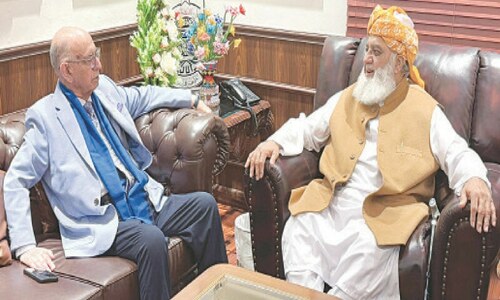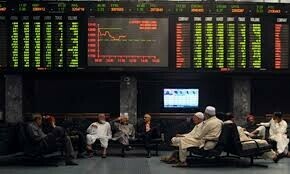ISLAMABAD, Aug 6: Foreign Minister Shah Mahmood Qureshi told the Senate on Wednesday that Pakistan made substantial gains during Prime Minister Yousuf Raza Gilani’s recent visit to the United States marked by a tripled development aid, dismissing opposition claims the trip to the main Western ally was a failure.
The minister, winding up a three-day debate on national security, assured the upper house that the four-month-old PPP-led coalition was following the right course in foreign policy aimed at protecting and promoting national interests and also declared it would not capitulate to militants while pursuing a multi-pronged anti-terrorism policy different from the one of use of force only, charted by President Pervez Musharraf that failed.
The main opposition group belonging to the formerly ruling pro-Musharraf Pakistan Muslim League-Q (PML-Q) had particularly targeted the prime minister’s first official visit to the United States that they said had been a flop in different respects, and accused his government of showing weaknesses against the traditional rival India and some recent provocations from President Hamid Karzai’s government in Afghanistan over a deadly bomb attack at the Indian embassy in Kabul.
Some opposition members, including PML-Q secretary-general Mushahid Hussain and former information minister Nisar A. Memon, even questioned the government’s understanding of issues of national security while leaders of coalition parties were discussing moves for a possible impeachment of President Musharraf.
But the foreign minister, in an eloquent, hard-hitting speech delivered in Urdu, rejected the charges as unfair and he and leader of the house Raza Rabbani, who briefly spoke before him, recalled some major perceived acquiescences of the previous government on issues such as the India-Pakistan civilian nuclear deal and confidence-building measures with New Delhi over the Kashmir dispute.
Mr Qureshi said the government made a “substantial progress” during the prime minister’s US visit in achieving its objectives to review bilateral relations at the highest level, remove “misunderstandings”, set up a trust-based long-term relationship and win economic and military assistance.
The prime minister, he said, also had interaction with all quarters relevant to policy-making including the future US leadership, Congress, the IMF and the World Bank, think tanks and prospective investors.
Among the outcomes he cited were a US commitment to respect Pakistan’s sovereignty (while fighting Al Qaeda and Afghan Taliban), complete support to the democratic dispensation in Pakistan, a strategic partnership dialogue beginning in September, an economic dialogue for which American experts will arrive here on Aug 11, tripled $15 billion development aid to be disbursed at the rate of $1.5 billion a year, an accelerated legislation to set up reconstruction opportunity zones in the tribal areas, a commitment to enhance Pakistan’s counter-terrorism capabilities, energy and education dialogues and an agreement to strengthen an anti-terrorism tripartite Afghan-Pakistan-Nato military commission.“If you study these achievements, no intelligent and patriotic Pakistani can say that the (prime minister’s) visit was a failure,” he said.
However, he said, the Americans had some expectations from Pakistan such as not allowing its soil to be used against any other country, expulsion of foreign fighters and checking cross-border movement of militants, all of which were also in Pakistan’s own interests.
The minister said while the government would never capitulate to terrorists, it would engage those people in a political dialogue who wanted to respect Pakistani laws, undertake social and economic uplift of the tribal belt and make a “measured use of force” as done lately in the tribal area near Peshawar and Swat and Hangu areas of the North West Frontier Province.
He also referred to talks with the Indian and Afghan leaders that led to a revival of cordiality and dialogue after recent tensions and rejected the opposition charges that the government had changed its position against the Indo-US nuclear deal and that Islamabad’s request for a UN probe into the Dec 27 assassination of former prime minister Benazir Bhutto would damage the country’s national interests.
Mr Qureshi announced his intention to create an economic diplomacy wing in the foreign ministry and promised to honour useful suggestions from the opposition in policy-making.















































Dear visitor, the comments section is undergoing an overhaul and will return soon.